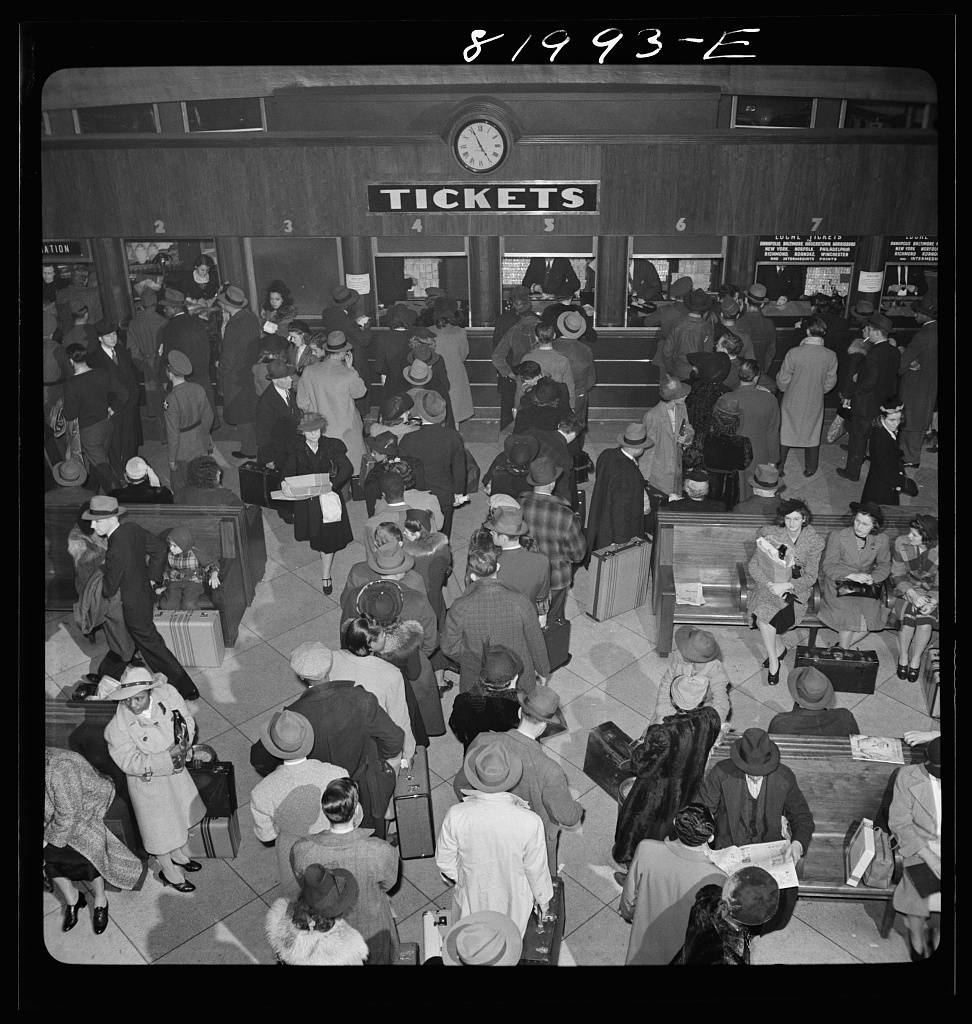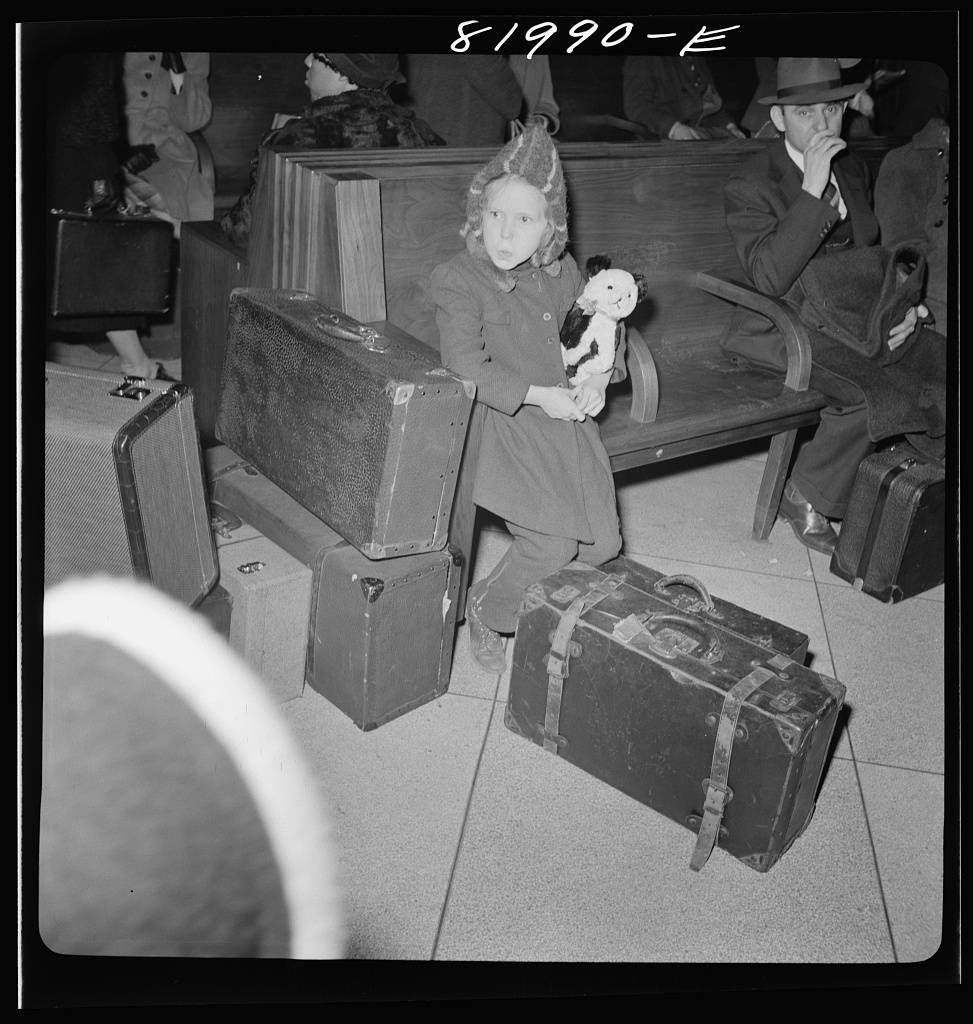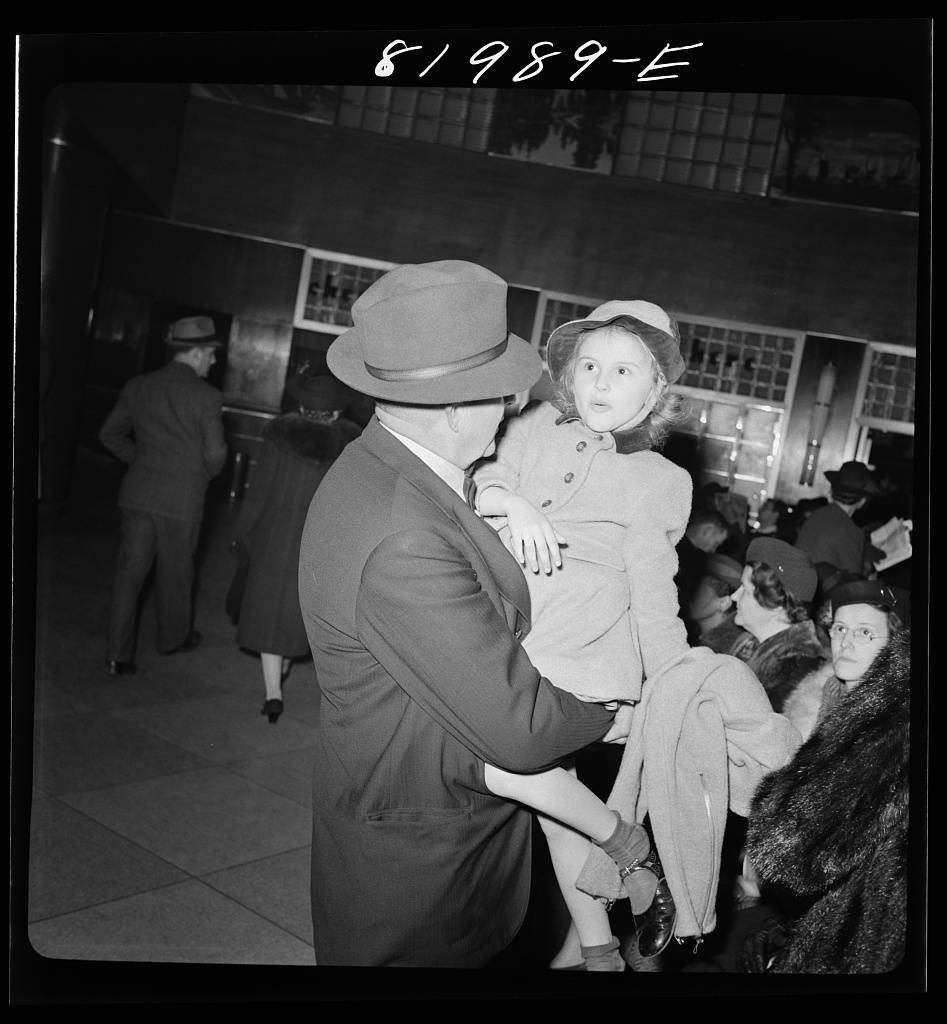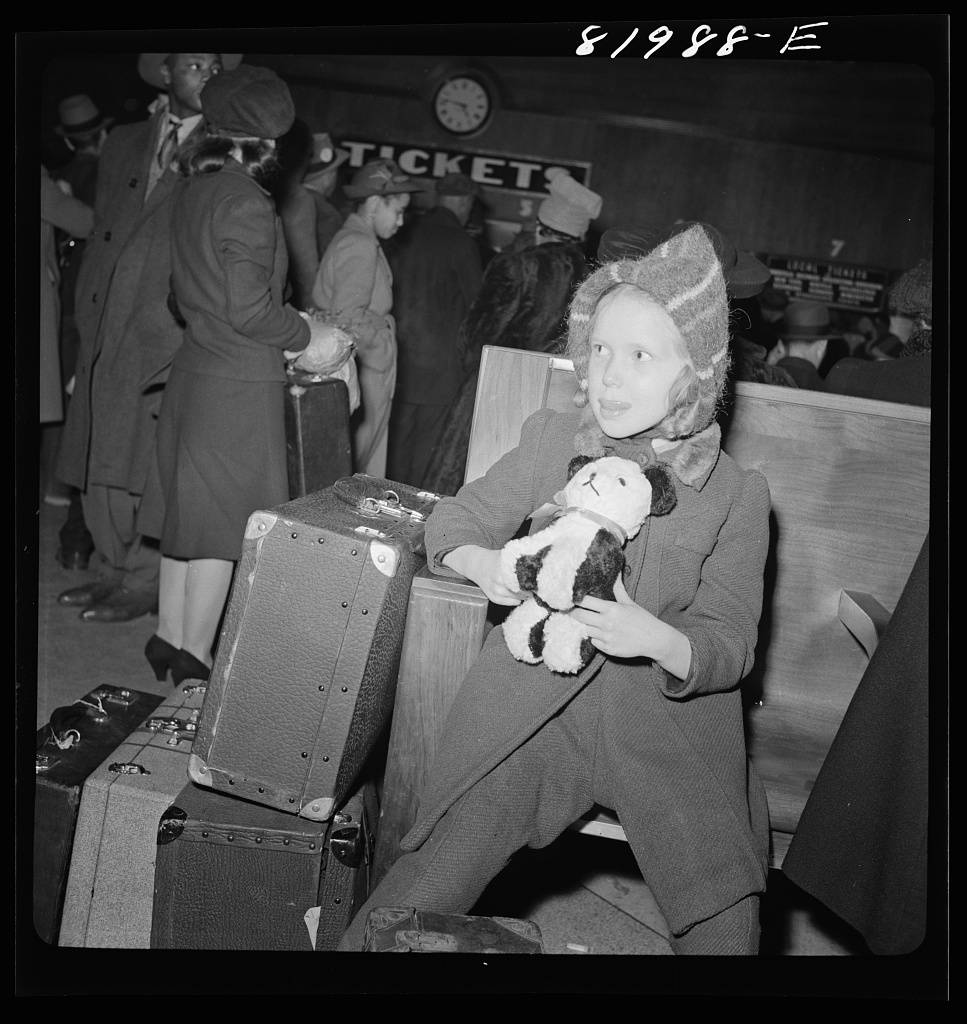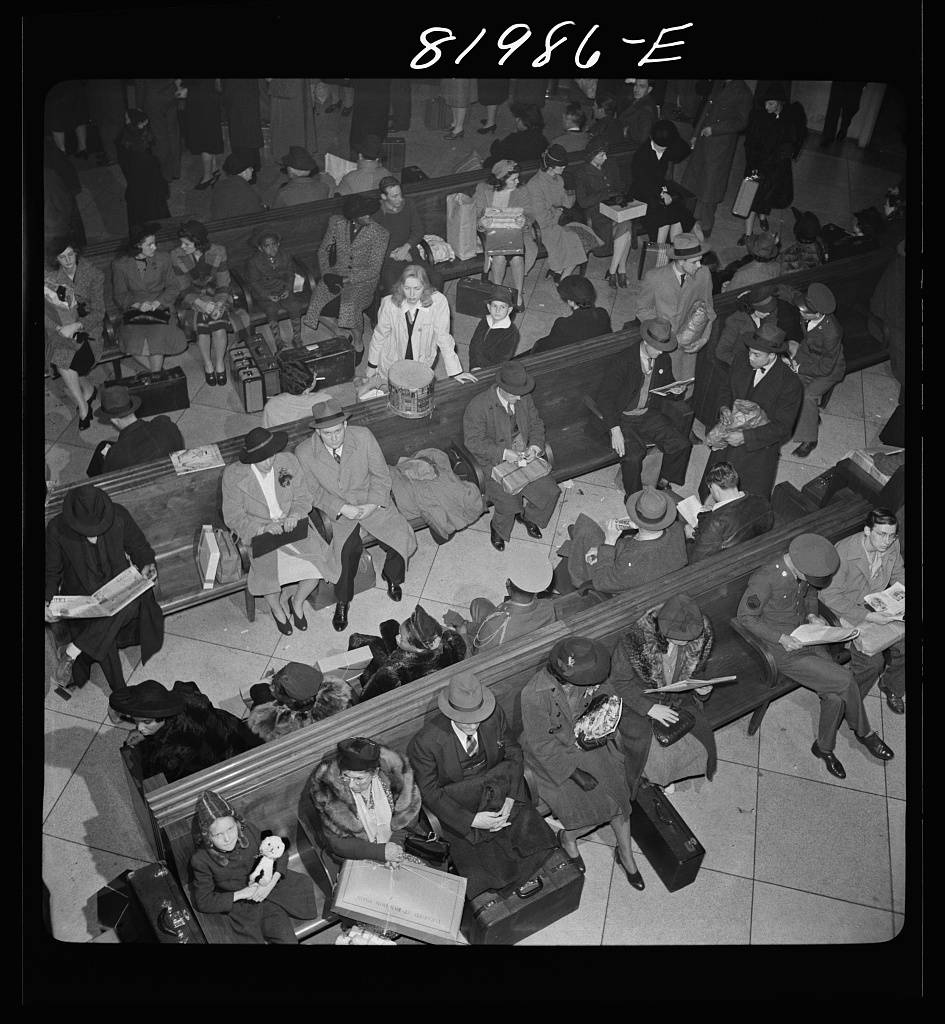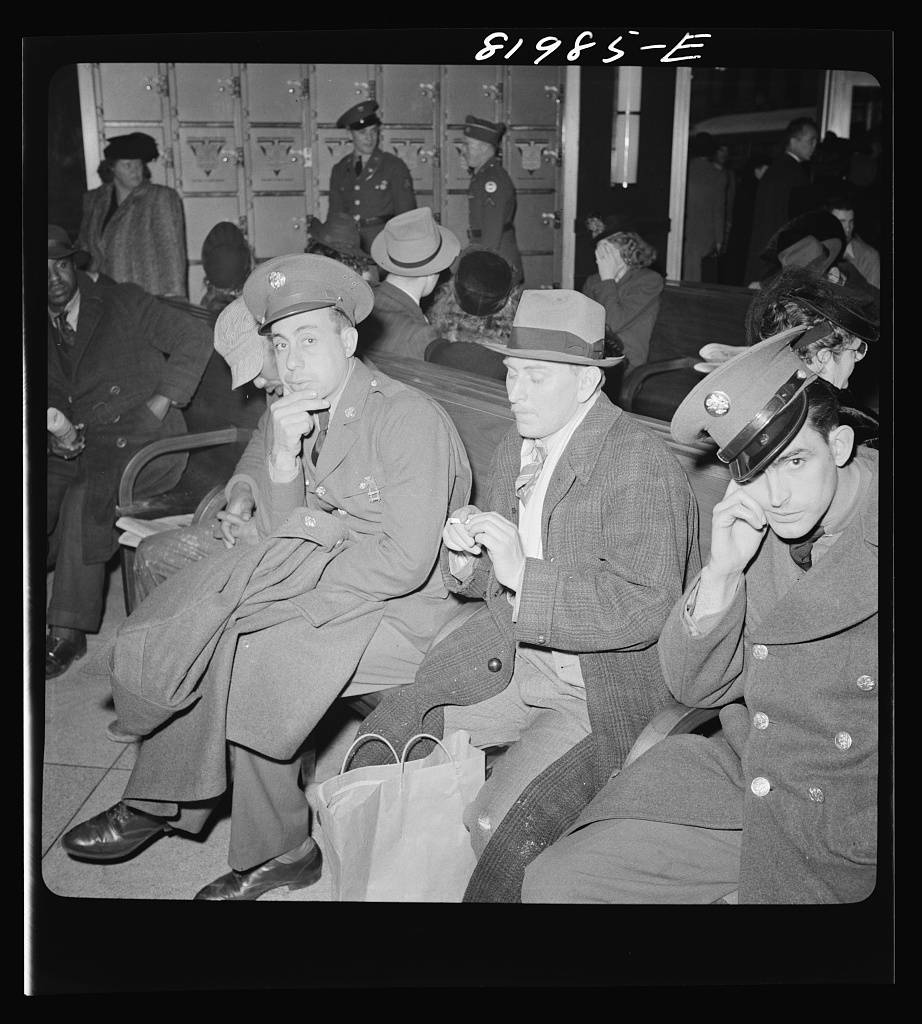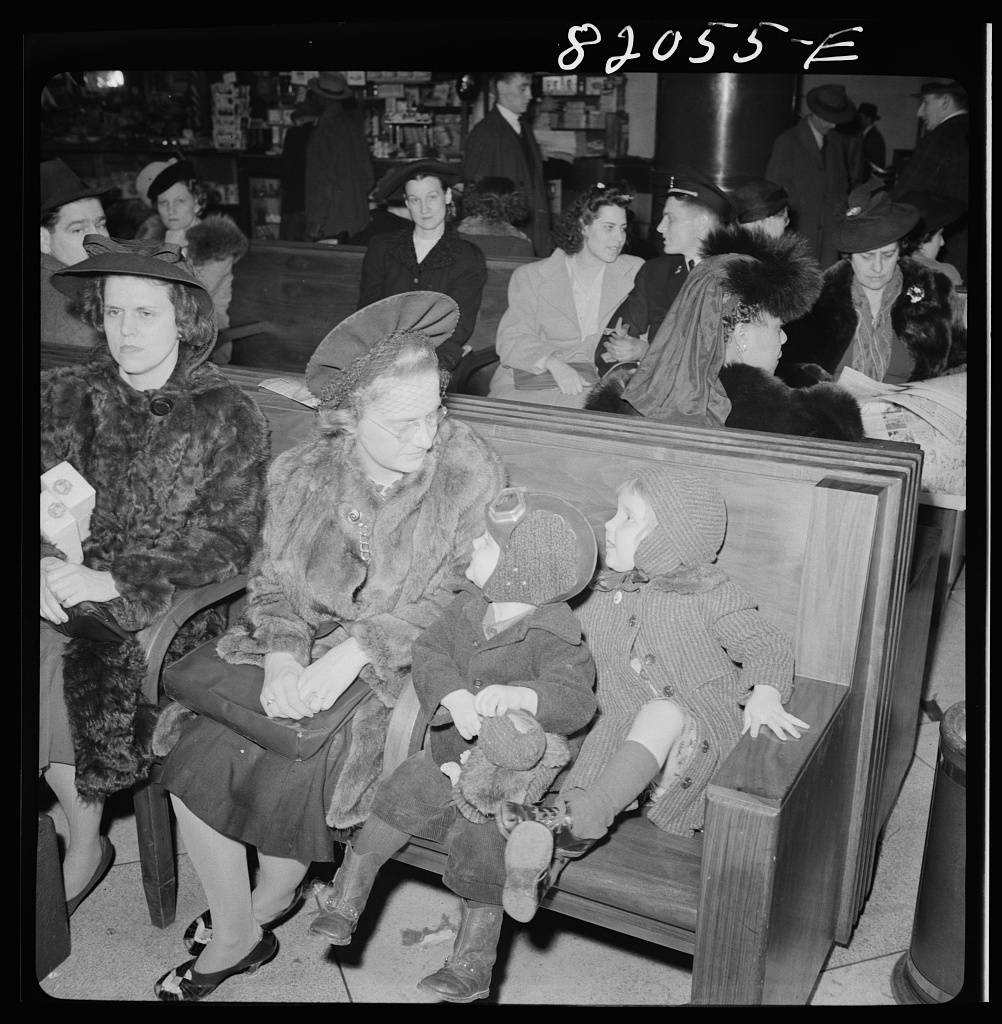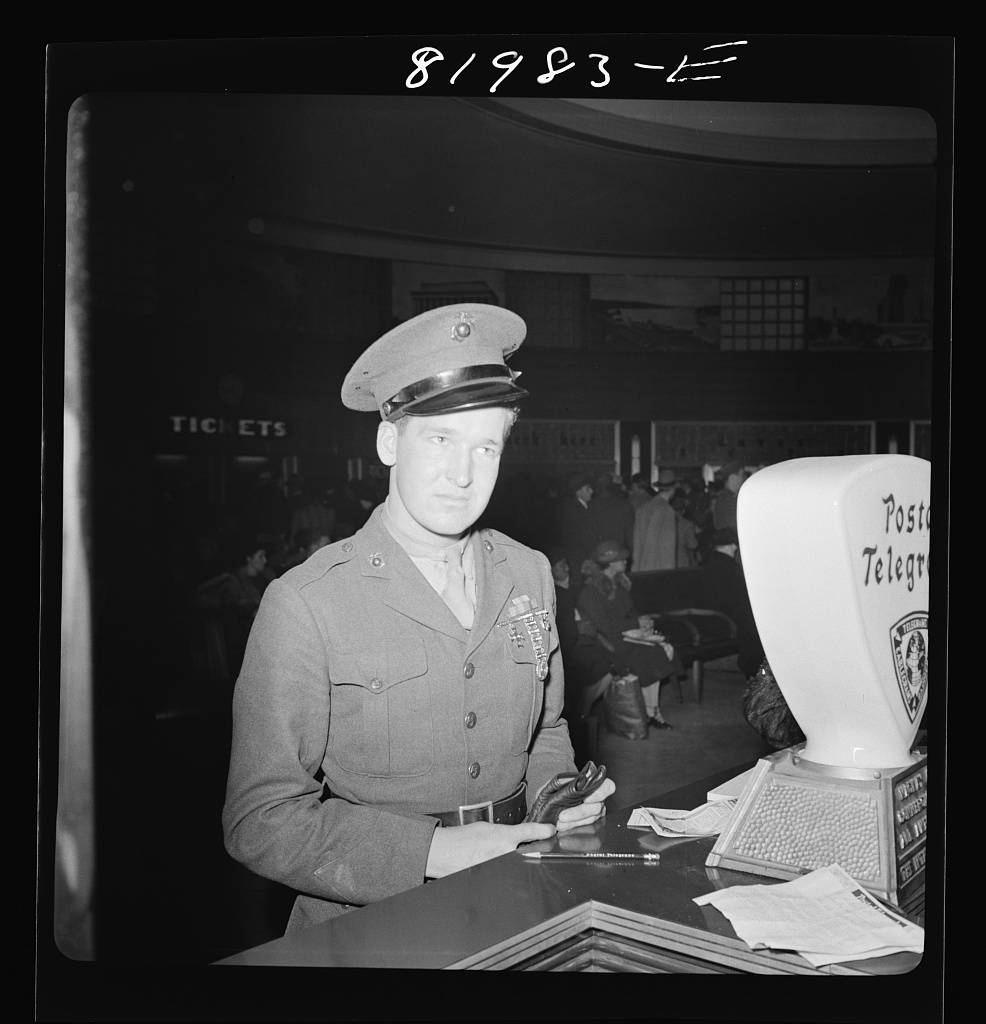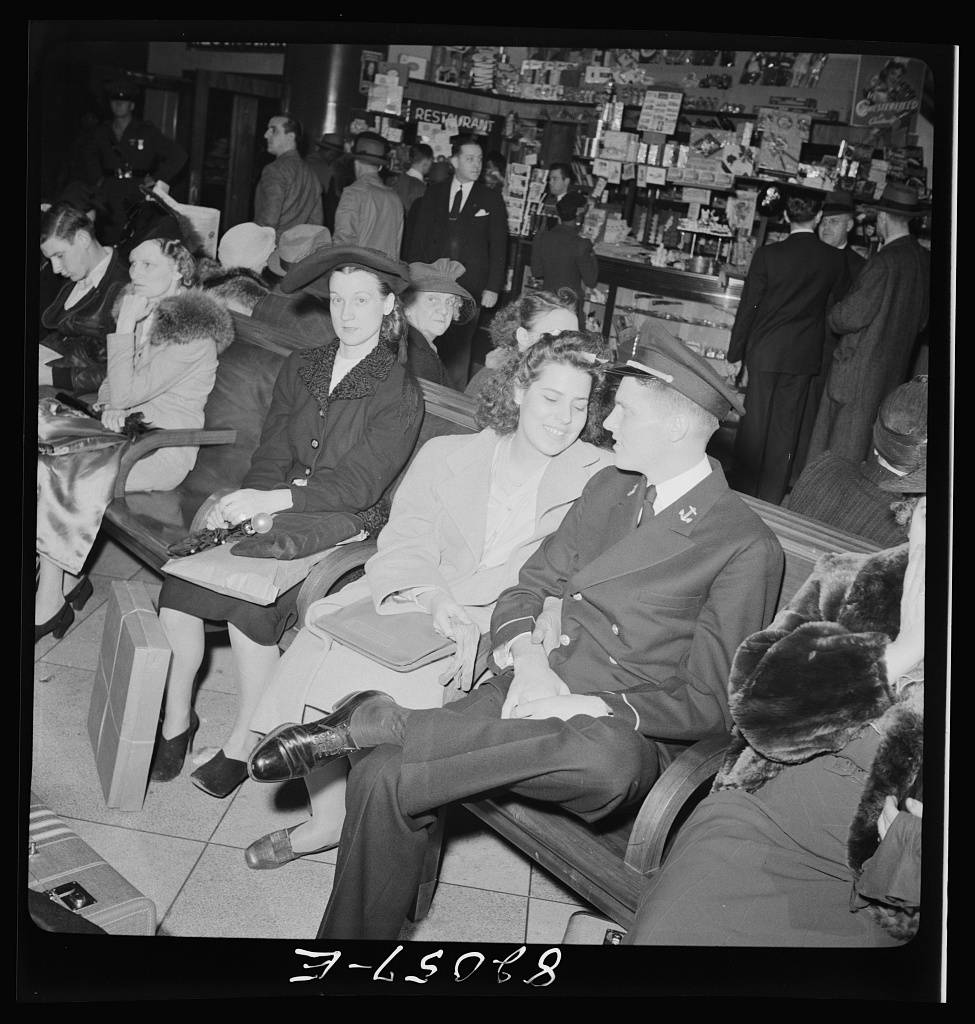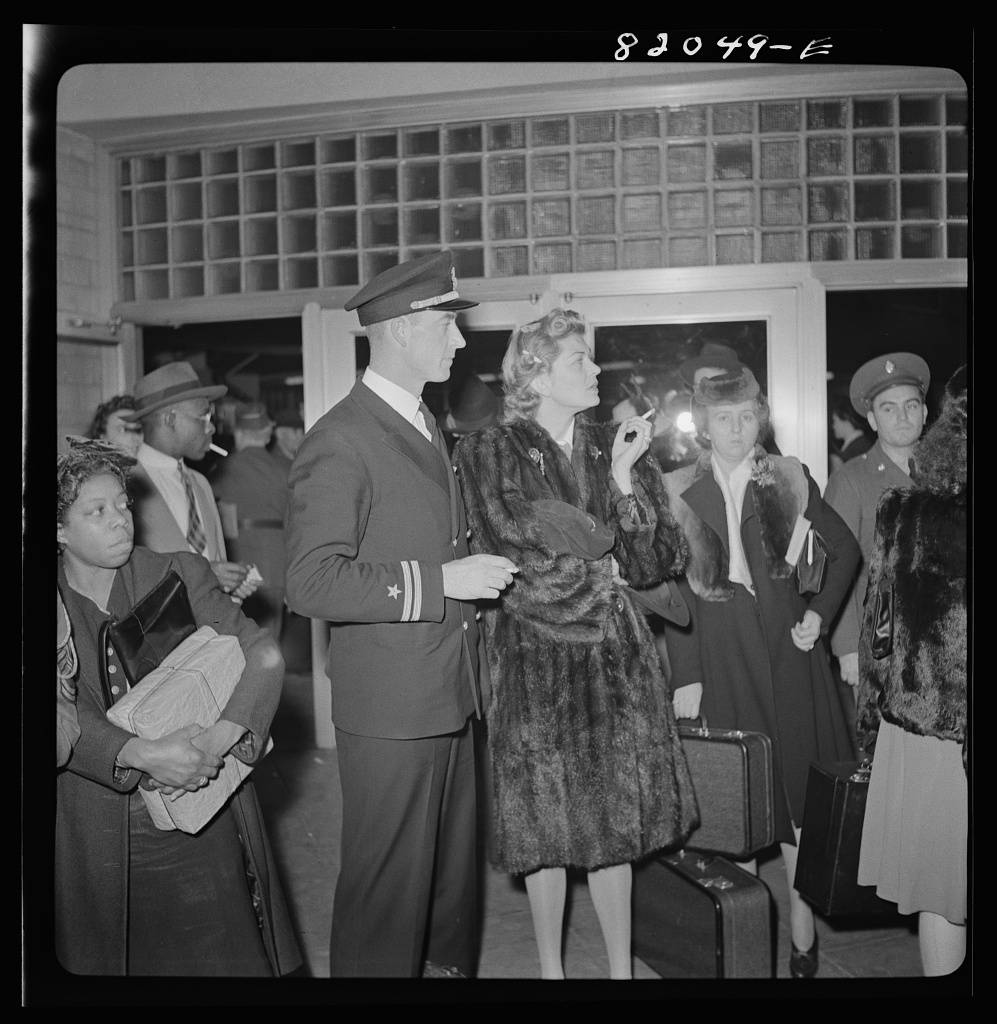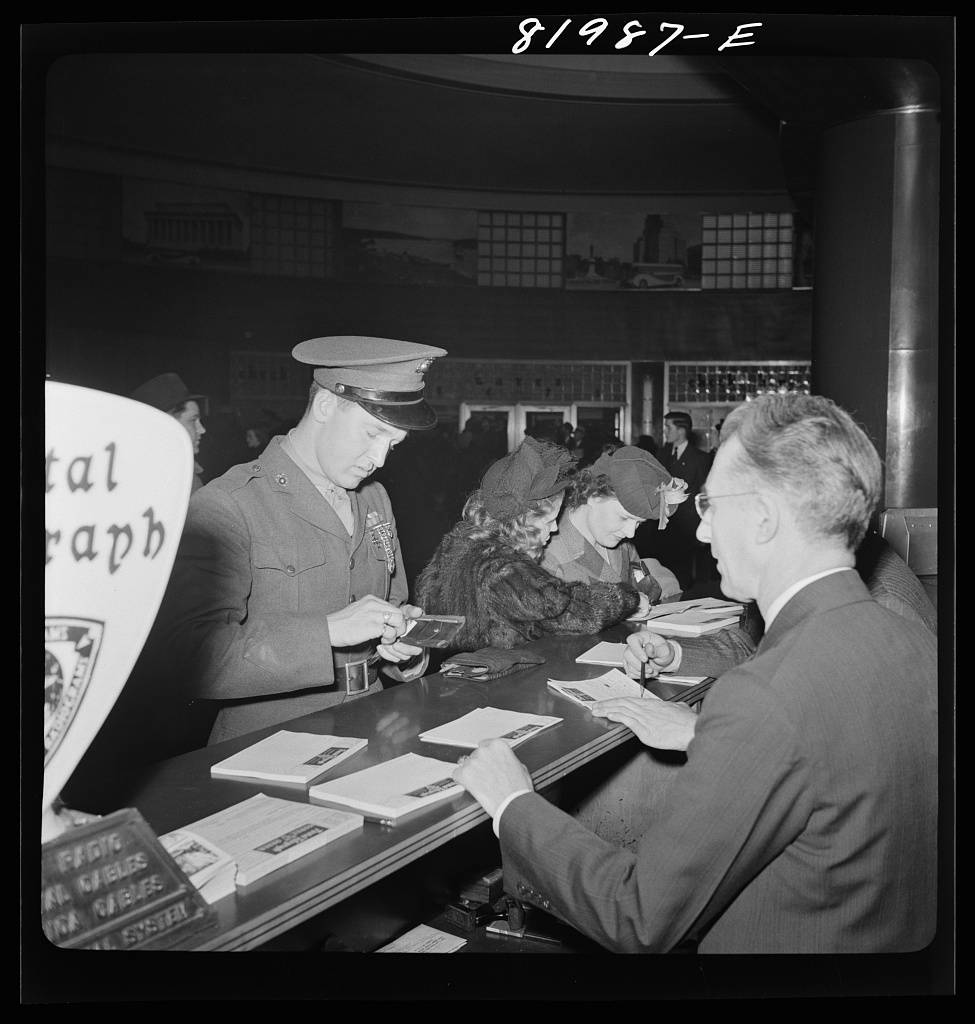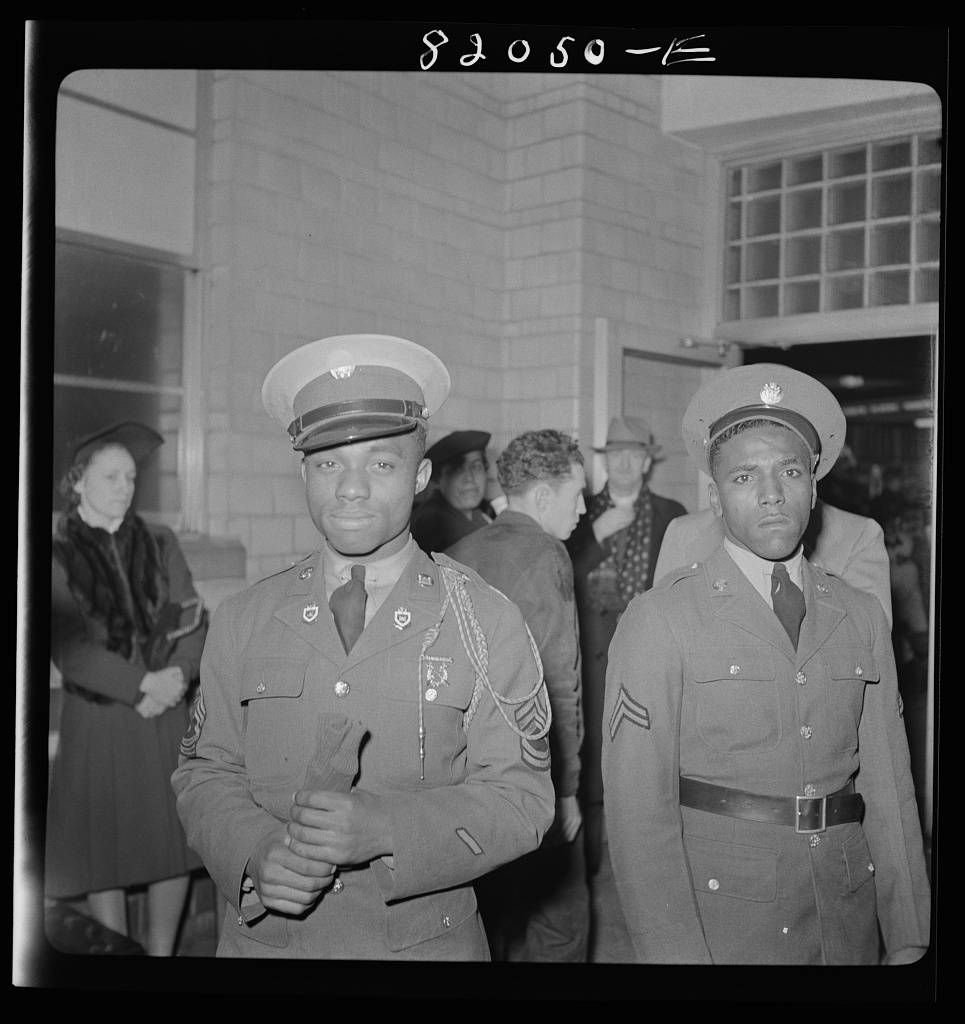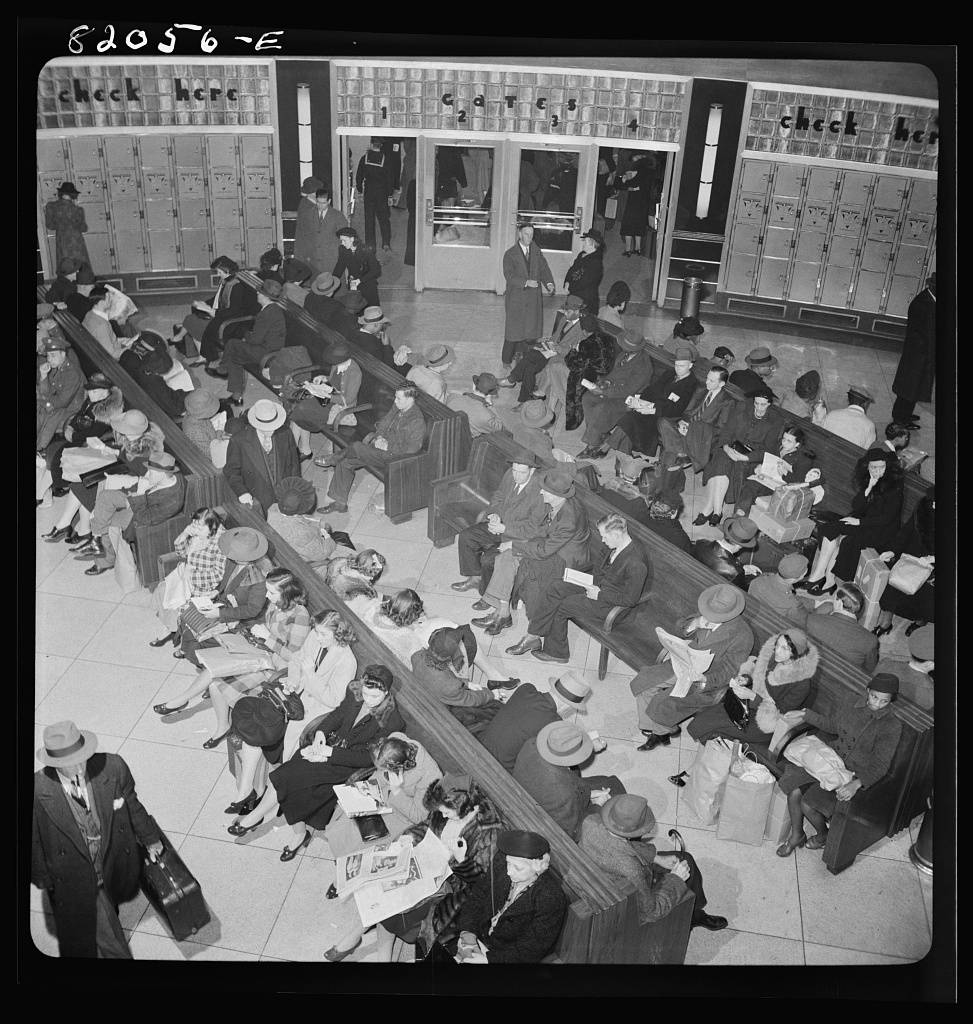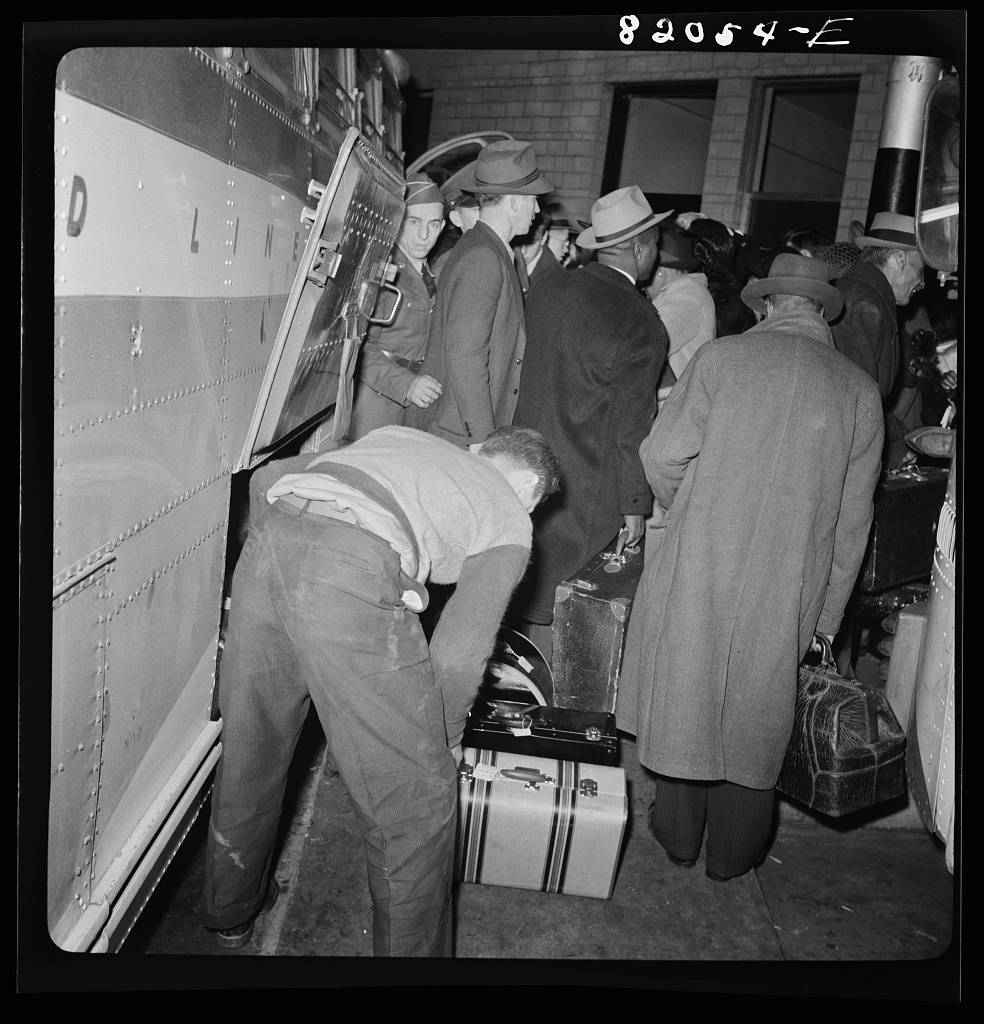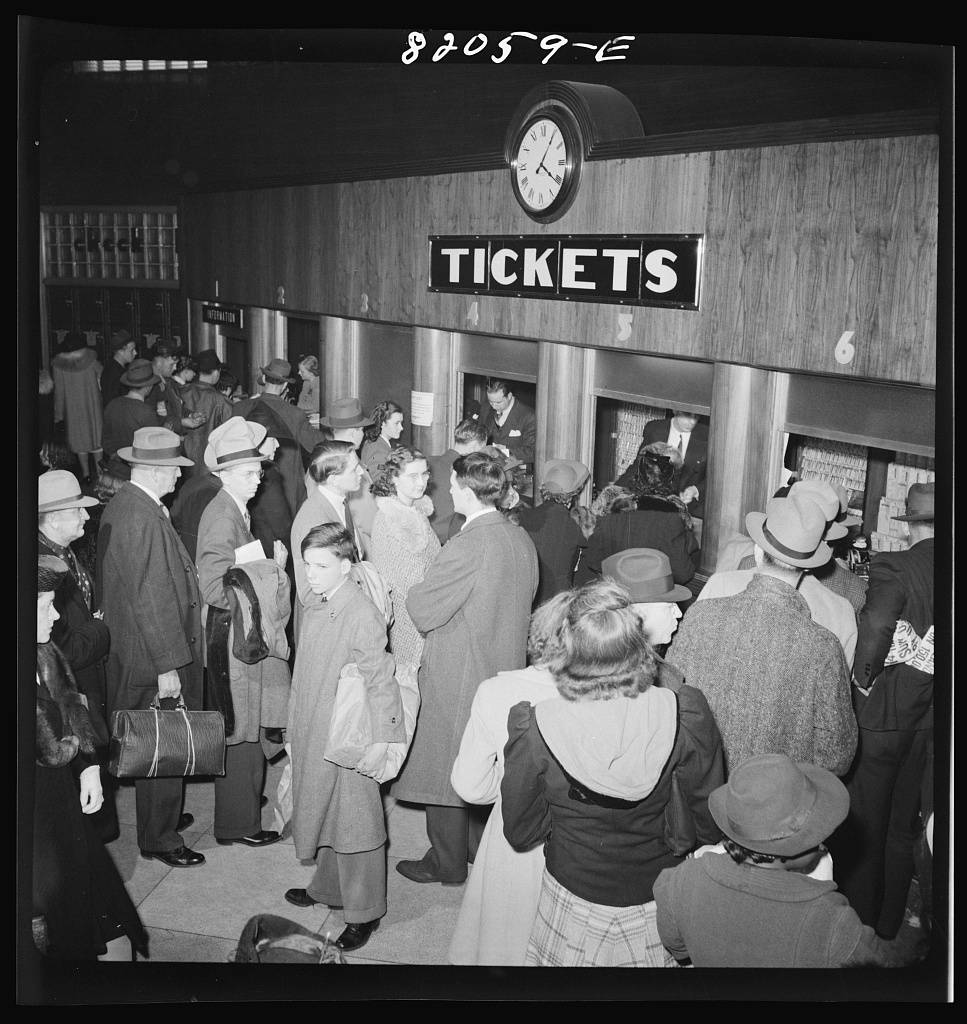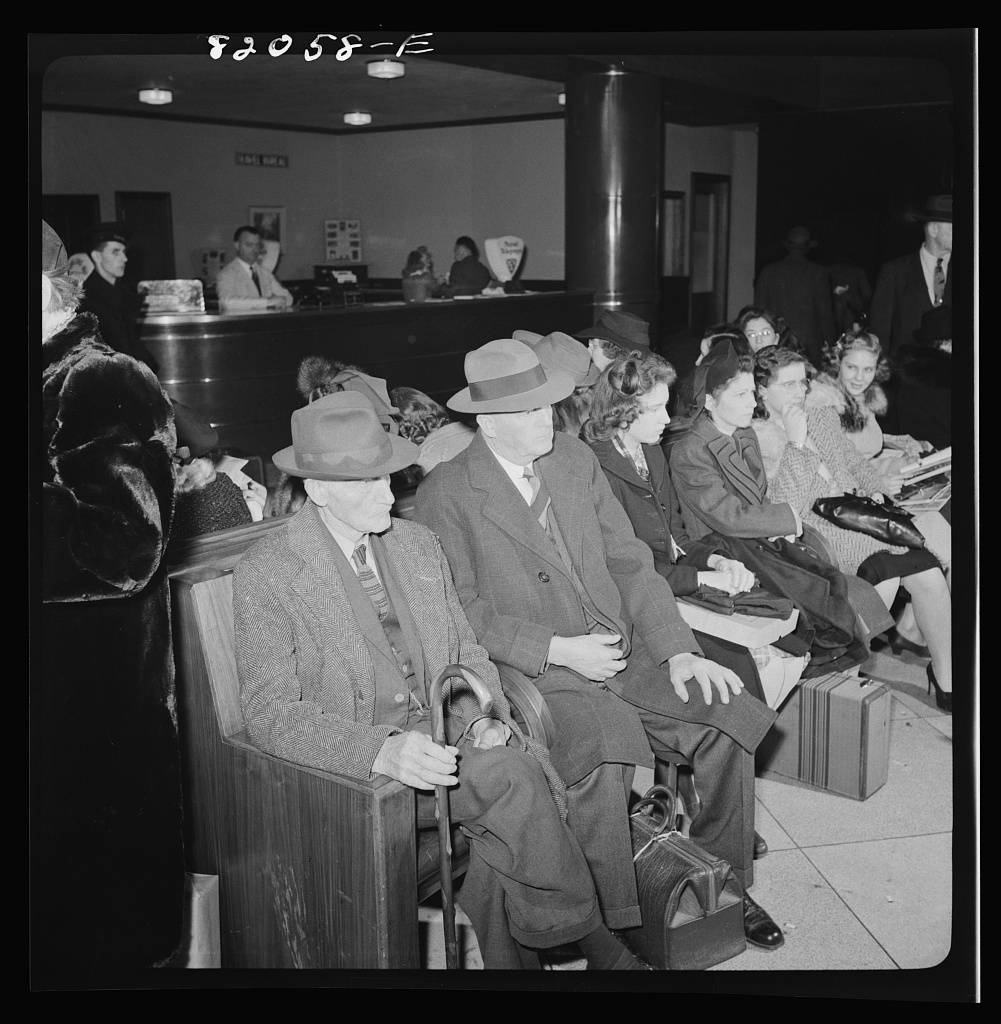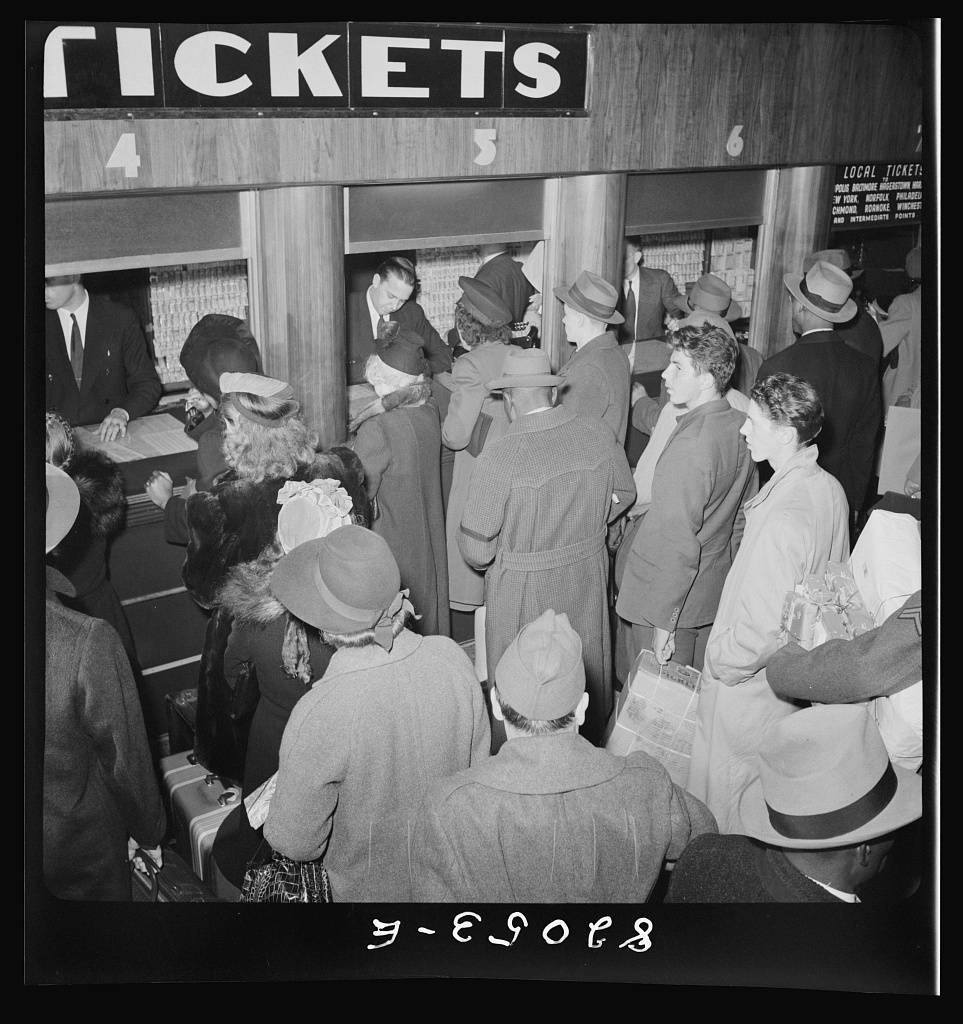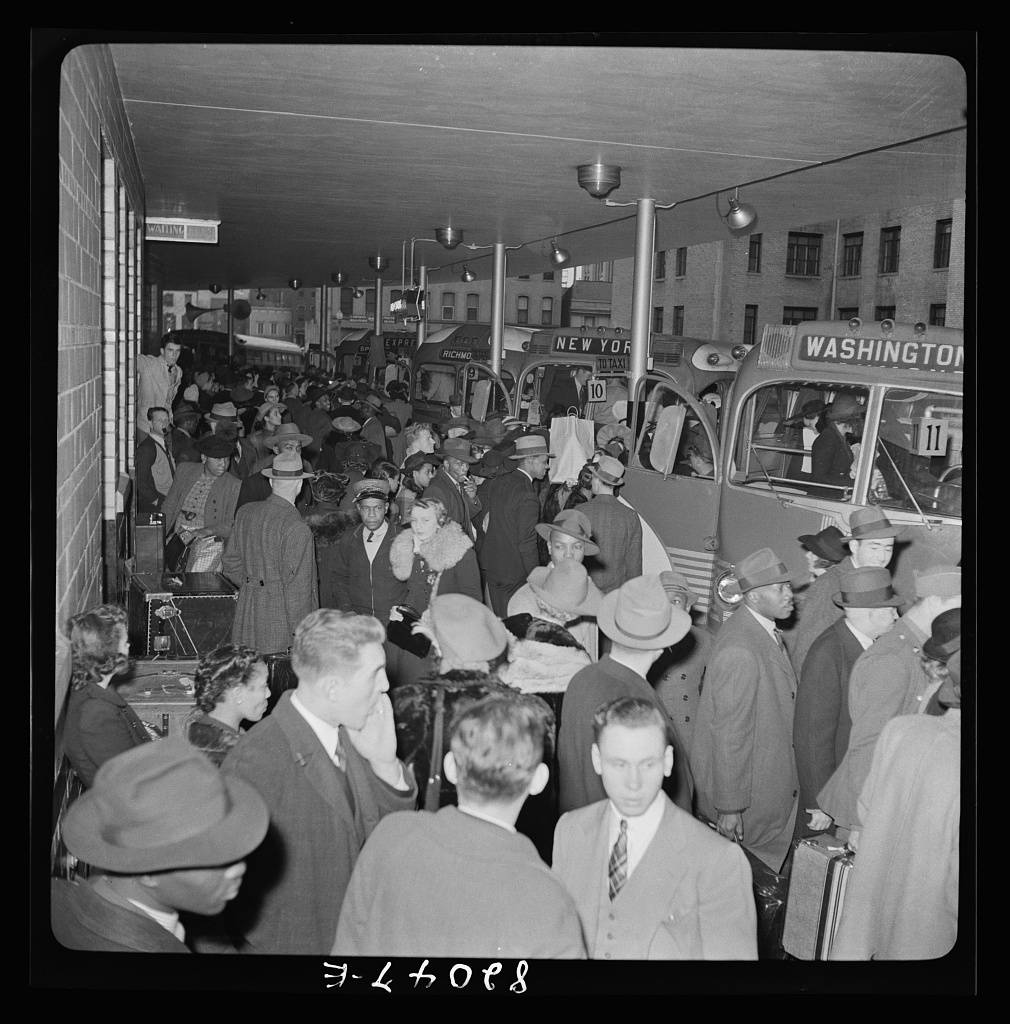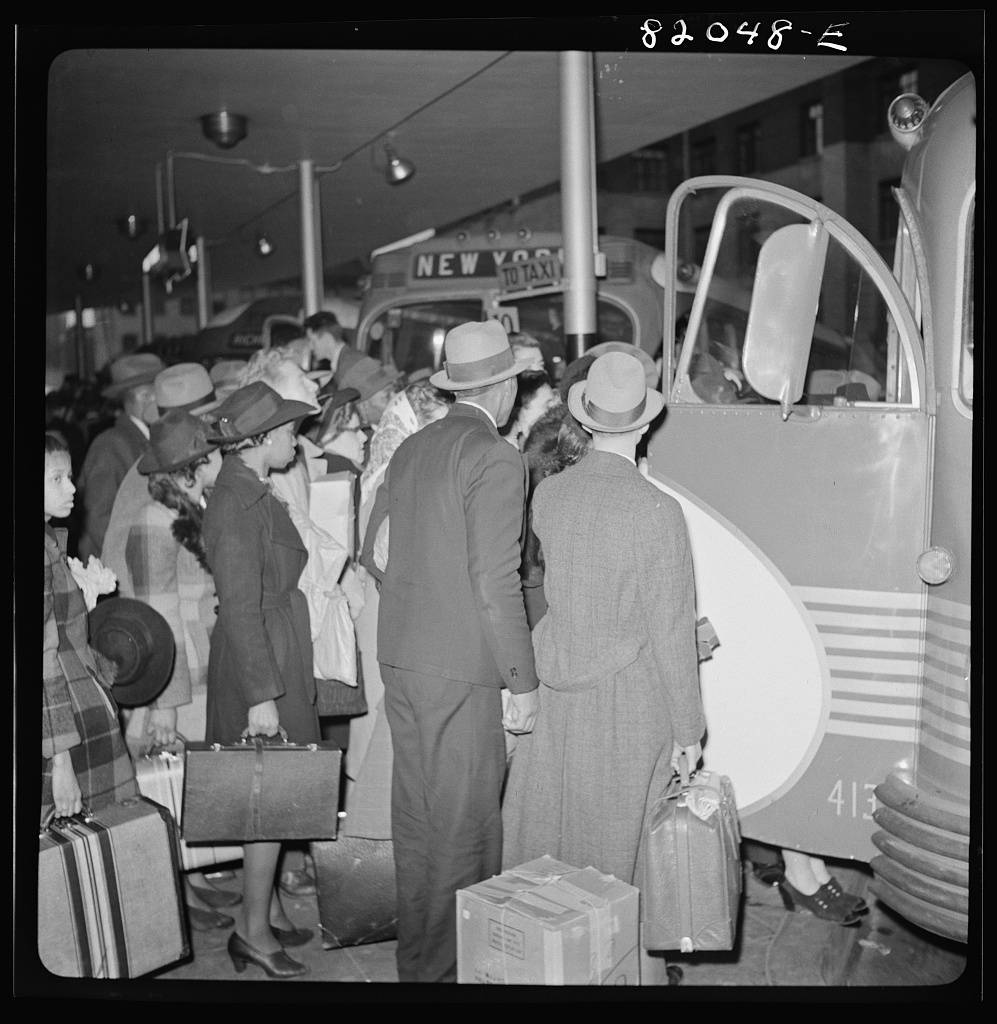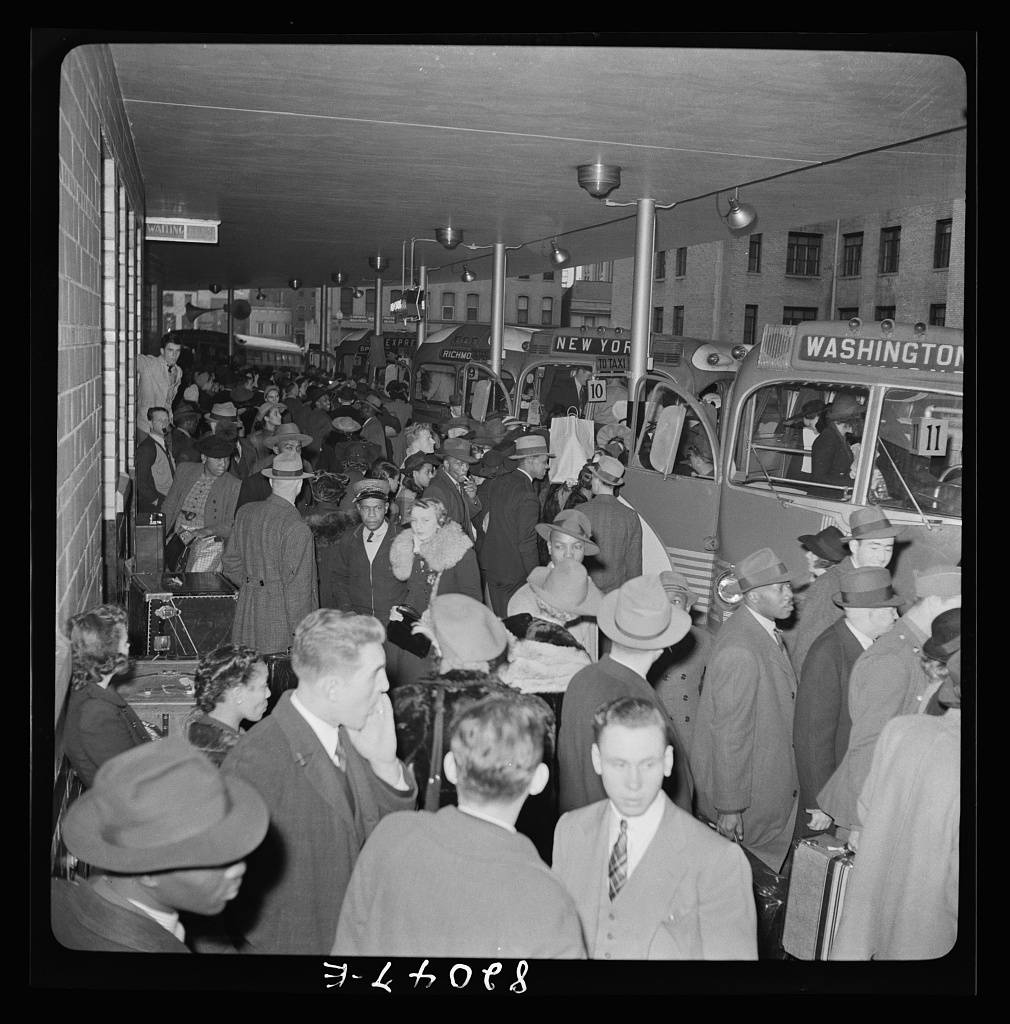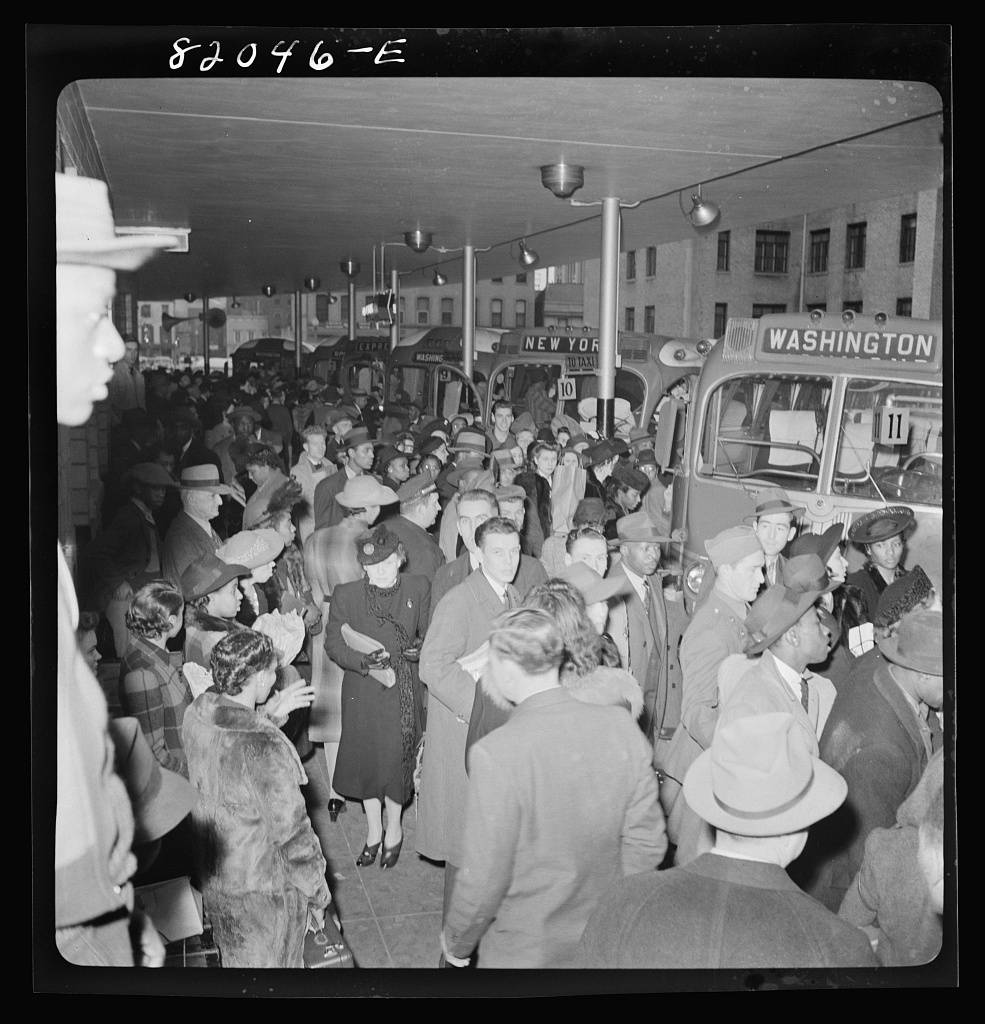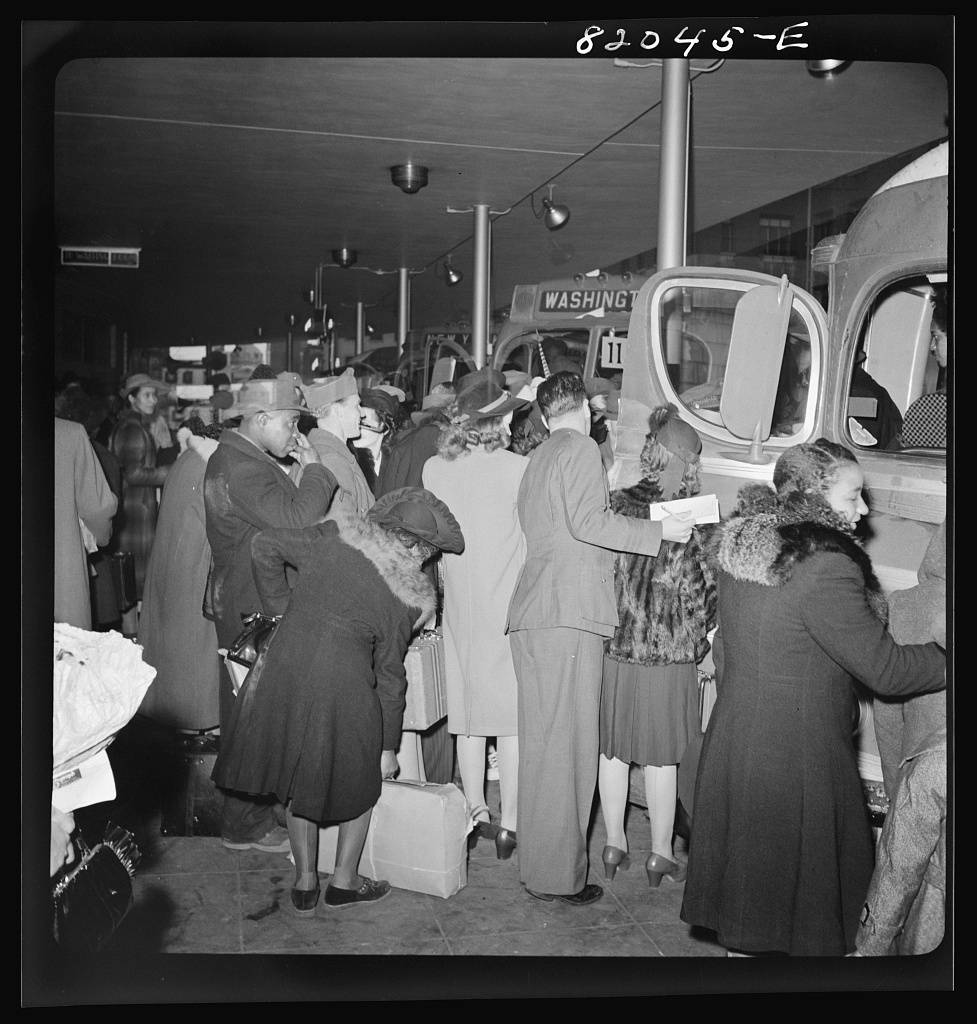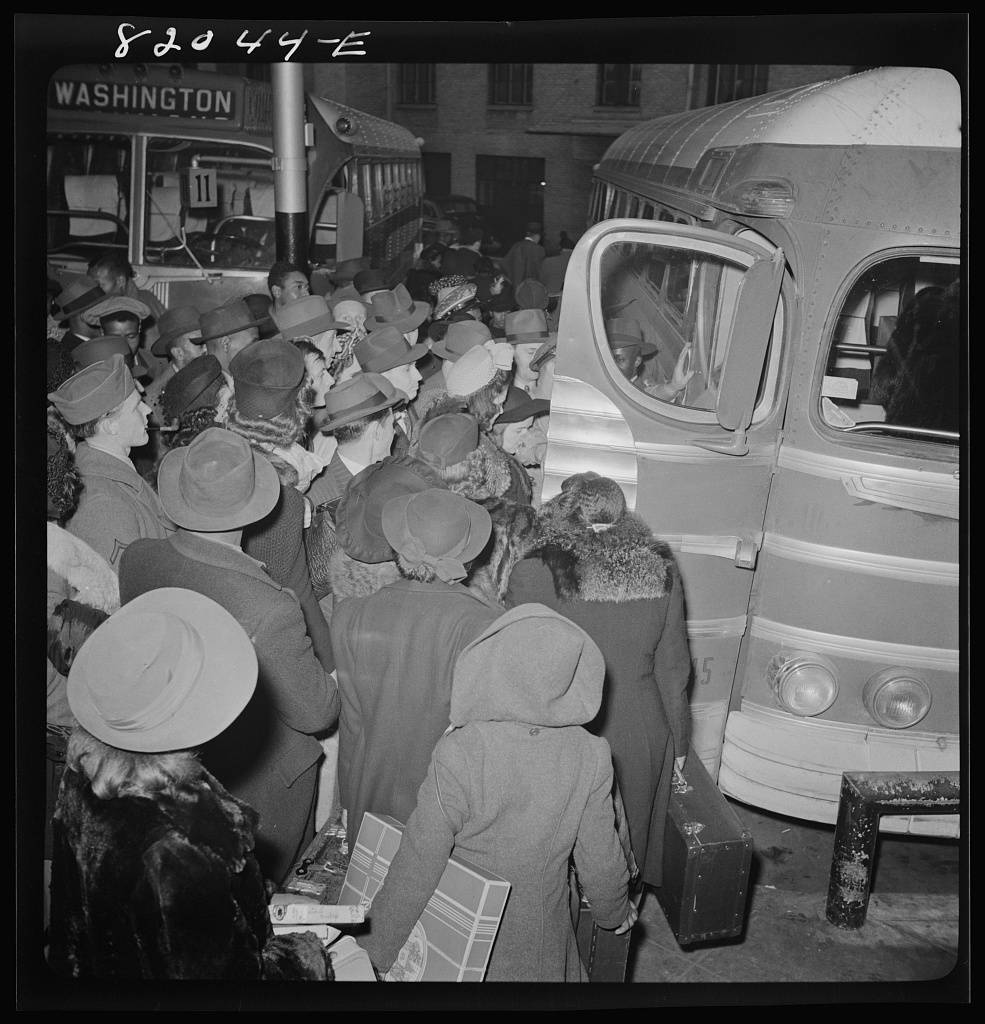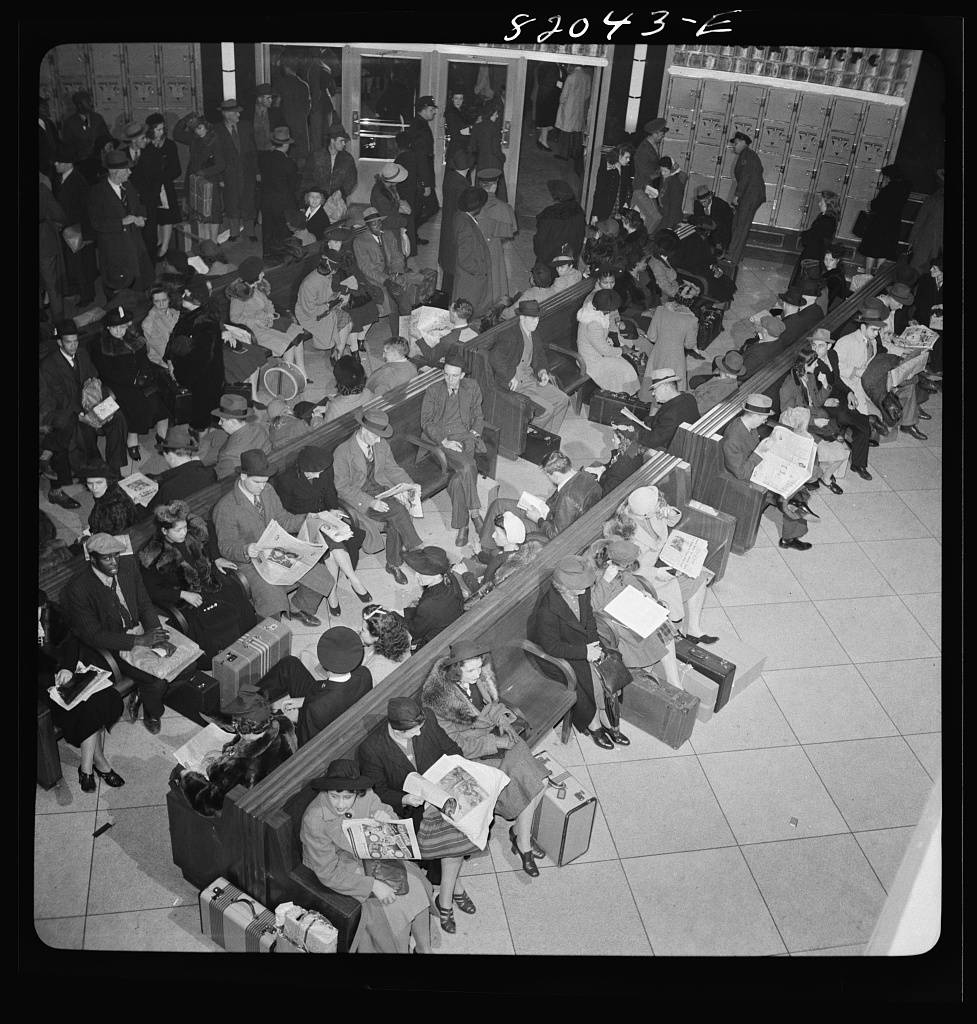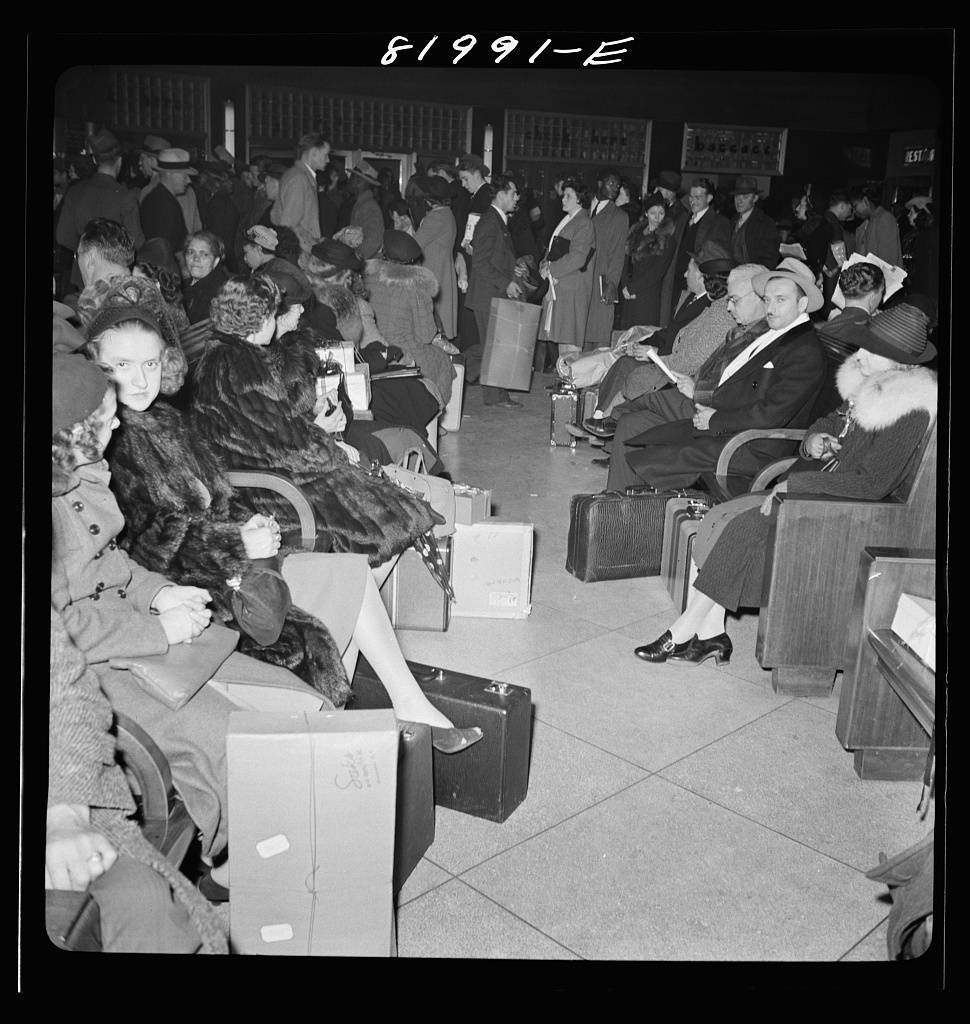April 1941, and the Greyhound bus terminal at Washington DC is bustling. The waiting room is crowded with civilians and servicemen. Stewardesses are renting pillows. Ticket lines are forming and slackening. Ticket checkers, military police, and shore patrol maintain order as servicemen and civilians arrange and wait for journeys home and away. John Collier (1913-1992) has been hired by the United States’ Office of War Information to record the scene.
“I’m not your destiny, or the Devil either!’ I said. ‘Look at you! Came to kill evil with your bare hands, and now away you go with no more glory than a man sideswiped by a Greyhound bus! And that’s all the glory you deserve!’ I said. ‘That’s all that any man at war with pure evil deserves.”
— Kurt Vonnegut
“As we rode in the bus in the weird phosphorescent void of the Lincoln Tunnel we leaned on each other with fingers waving and yelled and talked excitedly, and I was beginning to get the bug like Dean.”
― Jack Kerouac, On the Road
Tie a yellow ribbon ’round the ole oak tree
It’s been three long years, do you still want me?
If I don’t see a ribbon round the ole oak tree
I’ll stay on the bus, forget about us, put the blame on me
If I don’t see a yellow ribbon ’round the ole oak tree
Tie a Yellow Ribbon Round The Ole Oak Tree, by Irwin Levine and L. Russell Brown
Laughing on the bus,
Playing games with the faces,
She said the man in the gabardine suit
Was a spy.I said, “Be careful,
His bow tie is really a camera.”
“Toss me a cigarette,
I think there’s one in my raincoat.”
We smoked the last one
An hour ago.
Simon and Garfunkel, America
“inspiration.
five minutes in the back of a greyhound bus;
the world passing by.
a gateway to freedom.
the american dream.
— K.R. Albers, InDependence
Some Fridays I took the Greyhound bus, other Fridays I caught the Southern Pacific’s City of San Francisco on the last leg of its transcontinental trip. I can no longer tell you whether Milton put the sun or the earth at the center of his universe in Paradise Lost, the central question of at least one century and a topic about which I wrote 10,000 words that summer, but I can still recall the exact rancidity of the butter in the City of San Francisco’s dining car, and the way the tinted windows on the Greyhound bus cast the oil refineries around Carquinez Straits into a grayed and obscurely sinister light. In short my attention was always on the periphery, on what I could see and taste and touch, on the butter, and the Greyhound bus.
– Joan Didion, Why I Write
Poetry, I tell my students,
is idiosyncratic. Poetry
is where we are ourselves
(though Sterling Brown said
“Every ‘I’ is a dramatic ‘I’”),
digging in the clam flats
for the shell that snaps,
emptying the proverbial pocketbook.
Poetry is what you find
in the dirt in the corner,
overhear on the bus, God
in the details, the only way
to get from here to there.
Poetry (and now my voice is rising)
is not all love, love, love,
and I’m sorry the dog died.
Poetry (here I hear myself loudest)
is the human voice,
and are we not of interest to each other?
– Elizabeth Alexander, Ars Poetica #100: I Believe
Via Library of Congress
Would you like to support Flashbak?
Please consider making a donation to our site. We don't want to rely on ads to bring you the best of visual culture. You can also support us by signing up to our Mailing List. And you can also follow us on Facebook, Instagram and Twitter. For great art and culture delivered to your door, visit our shop.
